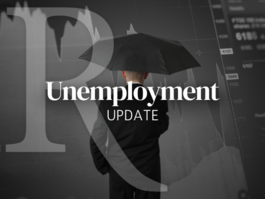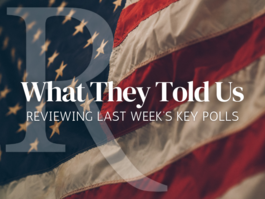Make Levies, Not War, on the Rich
A Commentary By Froma Harrop
Most Americans dislike class-warfare talk aimed at rich people. It does not follow that they don't want the wealthiest among us to pay more taxes. Polls show they do. That puts Democrats in the mainstream on such matters. But Democrats still need a sophisticated way to discuss this, one that does not rely on simple-minded formulations pitting a "greedy rich" against an "oppressed poor."
The angry electorate that just gave Democrats a beating -- largely middle class, largely white -- feels besieged by what it perceives as a freeloading lower class. And many think of the poor as dark people having children out of wedlock, living off food stamps, spending years on welfare and otherwise draining the productive members of society, that is, themselves.
There's little point in calling these folks racist. Some surely are, but one doesn't have to be racially biased to feel uneasy at the sight of so many minority 16-year-olds with big bellies and no prospect of marriage pushing strollers through the mall. True, the "baby mama" phenomenon is growing in white America, as well -- look at Bristol Palin's star-studded single motherhood -- but it's become the norm in many black and Hispanic communities.
Our post-industrial economy no longer accommodates high school dropouts, and one of the biggest drags on educational achievement is a chaotic family life. Not recognizing the culture-driven causes of poverty is intellectually dishonest and alienates middle-class voters coping with their own economic anxieties.
As for the rich, liberals too often buy into the false notion that great wealth must come at the expense of others. For example, New York Times columnist Nicholas Kristof recently likened the United States to a banana republic where "the richest 1 percent of the population gobbles up 20 percent of the national pie."
But "the economy is not a national pie eating contest," as Dartmouth economist Andrew Samwick smartly responded on the Capital Gains and Games website. "The phrase casts income as something that is consumed, not as something that is produced."
Meanwhile, most super-rich Americans committed no fraud in building their piles. "Do I feel oppressed that I made Steve Jobs richer by buying an iPad?" Samwick asks. "Of course not."
That doesn't mean that billionaires should be able to buy elections. It doesn't mean that hedge-fund managers deserve outrageous tax loopholes. It doesn't mean that financiers should be allowed to hobble Securities and Exchange Commission rules, then demand taxpayer bailouts when their risky deals collapse.
And it doesn't mean that raising these people's taxes to help reduce deficits is anything but a fine idea. Taxes must go up, and the higher the income, the less personal sacrifice in paying them. That's the reasoning behind our progressive income tax system. Any resulting "wealth redistribution" is a byproduct.
Many conservatives have adopted an unpleasant strain of servility toward the rich. (No, they don't hire us as a charitable gesture.) But liberals shouldn't answer the worshipping of wealth with a demonizing of it.
What Democrats should say to the top tax brackets is this: "Congratulations on your good fortune -- assuming it didn't come from cheating anyone or corrupting our civic life. May you long prosper, and, by the way, thank you for doing your bit to end our national deficit crisis."
Any effort to hike taxes for the upper incomes will spawn charges of "class warfare." But Democrats need not stoke these phony claims by cluttering their arguments with nonsense about income pies and implications that tycoons can't be perfectly nice people.
Keep it simple: This is about raising enough money to pay the government's bills in the fairest and most effective way.
COPYRIGHT 2010 THE PROVIDENCE JOURNAL CO.
DISTRIBUTED BY CREATORS.COM
Views expressed in this column are those of the author, not those of Rasmussen Reports.
See Other Political Commentary.
See Other Commentaries by Froma Harrop.
Rasmussen Reports is a media company specializing in the collection, publication and distribution of public opinion information.
We conduct public opinion polls on a variety of topics to inform our audience on events in the news and other topics of interest. To ensure editorial control and independence, we pay for the polls ourselves and generate revenue through the sale of subscriptions, sponsorships, and advertising. Nightly polling on politics, business and lifestyle topics provides the content to update the Rasmussen Reports web site many times each day. If it's in the news, it's in our polls. Additionally, the data drives a daily update newsletter and various media outlets across the country.
Some information, including the Rasmussen Reports daily Presidential Tracking Poll and commentaries are available for free to the general public. Subscriptions are available for $4.95 a month or 34.95 a year that provide subscribers with exclusive access to more than 20 stories per week on upcoming elections, consumer confidence, and issues that affect us all. For those who are really into the numbers, Platinum Members can review demographic crosstabs and a full history of our data.
To learn more about our methodology, click here.



